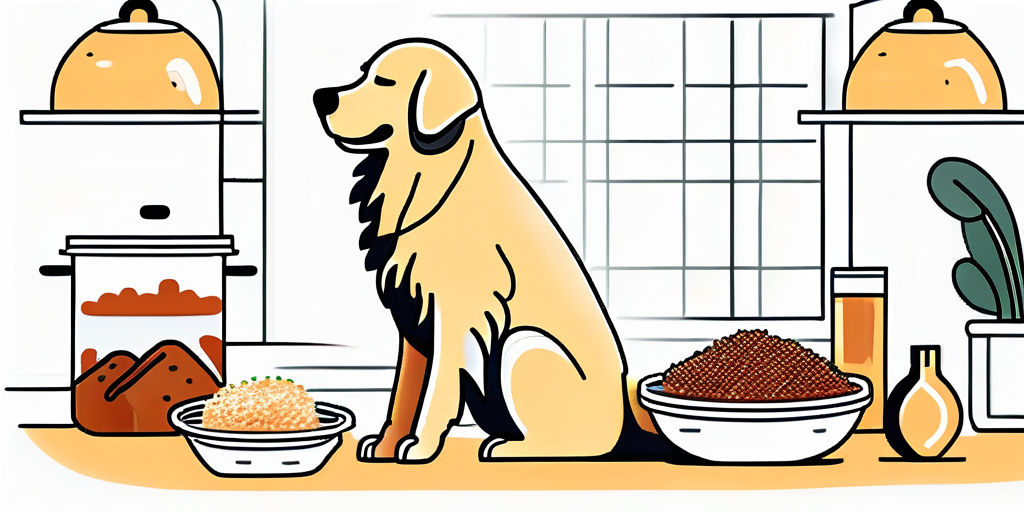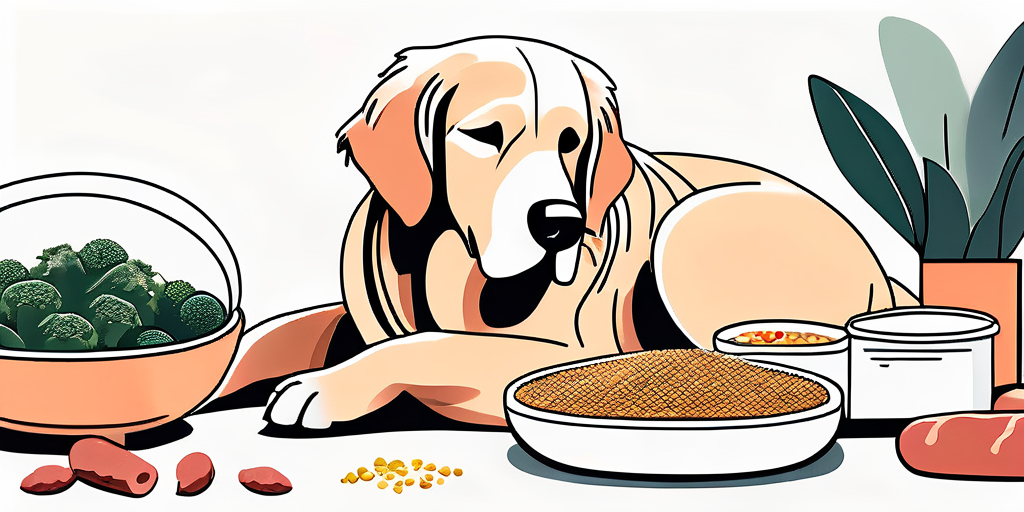Golden Retrievers are one of the most popular dog breeds worldwide, known for their friendly and tolerant attitudes. They are great family pets, and they are also used as service and rescue dogs. As they age, their dietary needs change, and it becomes crucial to provide them with the right nutrition to keep them healthy and happy. This guide will help you understand what to look for when shopping for the best senior food for your Golden Retriever.
Understanding the Nutritional Needs of a Senior Golden Retriever
As Golden Retrievers age, their metabolism slows down, and they become less active. This means they need fewer calories than younger dogs to avoid weight gain. However, they still require a balanced diet to maintain their health.
Senior Golden Retrievers often have specific dietary needs. They may require more protein to maintain muscle mass, less fat to prevent obesity, and additional fiber to aid digestion. Furthermore, they may need certain vitamins and minerals to support joint health and boost their immune system.
The Importance of Protein
Protein is a crucial component of a senior Golden Retriever’s diet. It helps maintain muscle mass and supports the immune system. Look for dog food that lists a high-quality source of protein, such as chicken or beef, as the first ingredient.
However, not all proteins are created equal. Some dog foods use fillers like corn and wheat gluten as protein sources, which are not as easily digestible or beneficial as meat-based proteins. Always check the ingredients list to ensure the protein comes from a reputable source.
The Role of Fats and Fiber
Fats are an essential part of a dog’s diet, providing energy and aiding in the absorption of certain vitamins. However, senior dogs, including Golden Retrievers, often need less fat in their diet than younger dogs to prevent weight gain.
On the other hand, fiber is increasingly important for senior dogs. It aids digestion and can help prevent constipation, a common issue in older dogs. Look for dog food that includes sources of dietary fiber like whole grains, vegetables, and fruits.
Choosing the Right Senior Dog Food
With the myriad of dog food options available, choosing the right one for your senior Golden Retriever can be overwhelming. Here are some factors to consider when making your decision.
Firstly, always choose a dog food specifically formulated for senior dogs. These foods are designed with the nutritional needs of older dogs in mind and often contain less fat and more fiber than regular adult dog food. They may also include supplements like glucosamine and chondroitin to support joint health.
Consider Any Health Issues
Many senior Golden Retrievers suffer from health issues like arthritis, obesity, or kidney disease. If your dog has a specific health condition, consider a therapeutic diet. These are specially formulated dog foods that can help manage certain health conditions. Always consult your vet before switching your dog to a therapeutic diet.
For example, if your Golden Retriever has arthritis, a diet high in omega-3 fatty acids can help reduce inflammation and improve joint health. If your dog is overweight, a diet low in fat and high in fiber can help them lose weight while still feeling full and satisfied.
Check the Ingredients List
Always check the ingredients list when choosing a dog food. Look for a high-quality source of protein as the first ingredient. Avoid foods that list corn, wheat, or soy as the first ingredient, as these are often used as cheap fillers.
Also, avoid dog foods that contain artificial colors, flavors, or preservatives. These can cause allergic reactions in some dogs and are generally not as healthy as natural ingredients.
How to Transition Your Dog to a New Diet
Once you’ve chosen a new senior dog food for your Golden Retriever, it’s important to transition them to the new diet gradually. This can help prevent digestive upset and make the change easier for your dog.

- Start by mixing a small amount of the new food with your dog’s current food. Gradually increase the amount of new food while decreasing the amount of old food over a period of about a week.
- Monitor your dog closely during this transition period. If they show signs of digestive upset, such as vomiting or diarrhea, slow down the transition or consult your vet.
- Once your dog is fully transitioned to the new food, continue to monitor them for any changes in their health or behavior. If you notice any negative changes, consult your vet. They may recommend a different diet or additional supplements.
Conclusion
Choosing the right senior food for your Golden Retriever is crucial to their health and wellbeing. By understanding their nutritional needs and choosing a high-quality dog food, you can help your furry friend enjoy their golden years in the best health possible.

Remember, every dog is unique, and what works for one may not work for another. Always consult your vet before making any major changes to your dog’s diet. They can provide personalized advice based on your dog’s age, weight, and overall health.
Stay Informed with BreedRead
As you cherish the golden years with your beloved Golden Retriever, ensure you’re equipped with the best knowledge for their care. Subscribe to the BreedRead free newsletter and gain access to a wealth of information tailored to the unique needs of your senior dog. From nutrition tips to health care strategies, BreedRead.com is your go-to resource for helping your furry friend thrive. Join our community of dedicated dog lovers today and make the most of your journey with your Golden Retriever.

